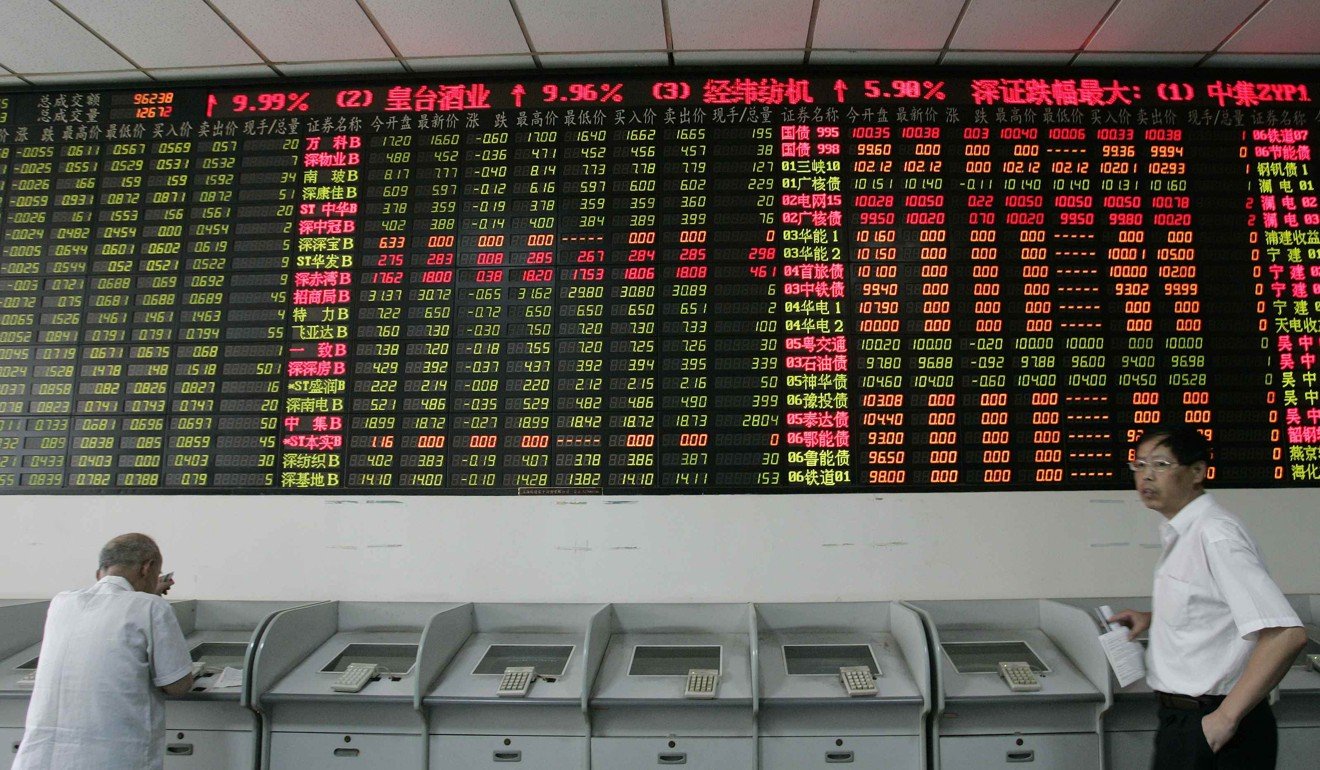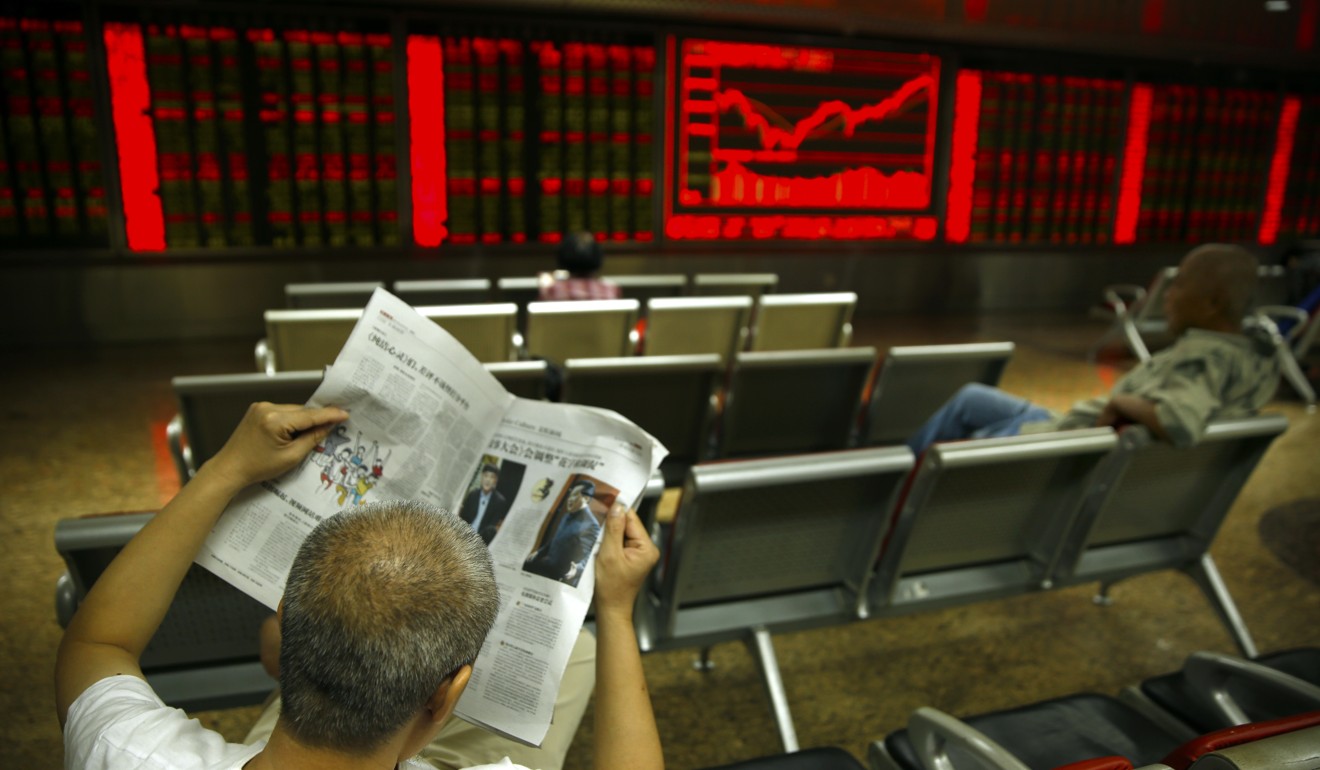
The only game in town? Why China will keep buying US Treasury debt
Media reports suggesting Beijing might slow down or halt its purchases of US bonds created a flurry of market activity, but in fact China has little choice in the matter
There is an old saying in finance that if you owe the bank US$100, you have a problem. But if you owe the bank US$1 million, then it is the bank that has the problem.
Well, the US government owes China US$1.2 trillion (and probably a lot more). Even adjusting for inflation, that means it is China that has the problem, not the US.
It seems financial markets forgot this saying this week. A report on the Bloomberg news service that Beijing is looking to scale back, or even halt, its purchases of US Treasury debt triggered a flurry of additional unease in markets that were already feeling jittery.
In response US Treasury debt sold off, pushing the yield on 10-year bonds to a 10-month high and prompting some watchers to declare the end of the long 35-year bull market in bonds.

Now to be fair, there are some good reasons why Chinese officials might want to trim their purchases of US government debt. There are signs that inflationary forces are emerging in the US economy, which will tend to push US Treasury yields up, and bond prices down.
But even though Beijing might like to stop buying US Treasuries, that does not mean it can. And even if it could stop, that would not mean other investors would be right to take fright at the prospect.
China buys US Treasury debt – lending money to the US government – because its export industries earn enormous sums of foreign currency. Over the 12 months to November, China ran a trade surplus of US$416 billion. And despite Beijing’s efforts to denominate more of China’s international trade in yuan, the bulk of those earnings came in the form of US dollars.

Over the years, such enormous trade surpluses have driven Beijing’s accumulation of US$3.14 trillion in foreign currency reserves. Most of those reserves – probably US$2 trillion – are held in US dollars. And most of that amount – at least US$1.2 trillion and very likely more – is invested in US Treasury debt.
Quite simply, China’s reserve managers don’t have much choice in the matter. The US$14.7 billion tradeable US Treasury market is about the only relatively low risk market out there large and liquid enough to provide China with investible assets for its foreign reserve stockpile.
What could sneak up and derail the global bull market in 2018?
Sure, both the euro zone and Japan also issue vast amounts of government debt. But in both economies the local central banks have embarked on major programmes of quantitative easing that have seen central bank purchases of bonds fully absorb net new government issuance. In other words, as far as China is concerned, when it comes to buying government bonds, the US Treasury is the only big issuer in town.
In theory, China’s reserve managers could look beyond government debt, and chose to buy corporate debt or stocks instead. But such diversification is difficult. Corporate bonds are less liquid than government debt, and holding them means running additional credit risks that can be tricky to assess. And the risks of holding equities are even greater and harder to fathom.

So it is no surprise that China continues to buy US Treasuries. In spite of all the reasons China’s reserve managers might have to reduce their holdings, data from the US government shows that between November 2016 and October 2017 China’s official holdings of US Treasury debt grew, not shrank, expanding by US$140 billion.
China’s reserve managers didn’t have much choice. But imagine that they did. Imagine that Beijing did attempt meaningfully to diversify its reserves away from US Treasuries, perhaps by buying European government debt or US corporate bonds. It does not follow that the market would be right to be spooked by the move.
For one thing, Beijing would manage the shift very carefully, lest the change in flows should trigger a sell-off that would undermine the market-to-market value of its stock of Treasury holdings. That’s the sort of slip-up that can end careers.
After all those ‘hard landing’ warnings, do you still want to bet against China?
And for another, consider the consequences of the shift. Beijing’s reserve managers are such big investors, that if they were to switch a sizeable portion of their purchases out of US Treasuries and into European debt, they would drive down the yields on European debt relative to the yields on Treasuries. Similarly a switch into corporate debt would narrow corporate spreads to Treasuries.
For other big players in the market – pension funds, insurance companies, commercial banks and other central banks – the shift would increase the attractiveness of the risk-adjusted return on Treasuries relative to other assets, and they would increase their allocations to US Treasury debt accordingly.
In short, as long as China is forced to buy some liquid foreign currency assets somewhere, the US Treasury market will not suffer greatly, because if China turns away from US Treasuries, it will simply displace other investors, driving them into the market.
The investors who got spooked this week might not understand all this, but China’s reserve managers certainly do, which is why the following day the State Administration of Foreign Exchange, the body responsible for overseeing Beijing’s reserve pile, dismissed the report that China was planning to halt its purchases of US Treasury debt as “fake news”. It was right.
Tom Holland is a former SCMP staffer, who has been writing about Asian affairs for more than 20 years

